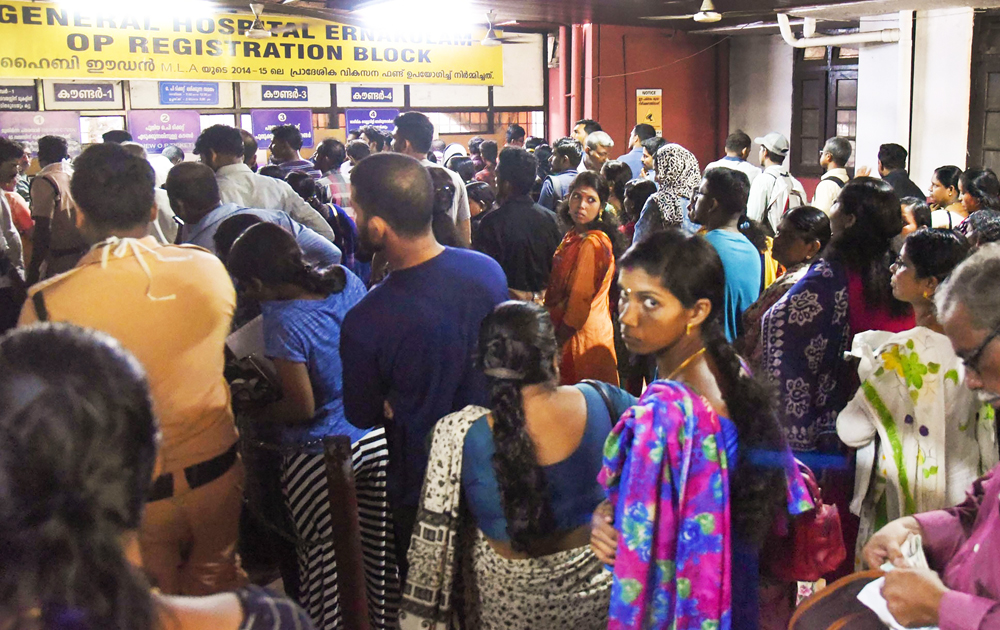A possible Nipah rerun is staring at Kerala with a college student isolated in intensive care with symptoms of the deadly infection, exactly a year after the first outbreak.
“It’s suspected to be (Nipah). Let’s hope it’s not,” health minister K.K. Shylaja told reporters. “We have deployed all measures to handle a Nipah outbreak.”
Blood samples from the 23-year-old, admitted to a private hospital in Ernakulam, have been sent to the National Institute of Virology in Pune.
The patient, an Ernakulam native whose name has been withheld, had complained of high fever while on a brief internship with a private company in Thrissur. He had travelled for the internship with 22 other students, all of whom have been traced by medical authorities.
He had consulted a doctor at a private hospital in Thrissur. When his fever refused to abate, his family took him to the hospital in Ernakulam. Its doctors told the district health authorities that the symptoms were similar to a Nipah infection’s.
Seventeen people, including a nurse, were killed in the first ever Nipah outbreak in Kerala in Kozhikode last June. The medical team that had led the battle against Nipah in Kozhikode has been brought to Ernakulam to treat the latest patient.
Shylaja has asked people to remain calm and report any sustained fever to the nearest hospital.
“We are well stocked with the medicine. After last year’s outbreak, we had sourced an antibody from Queensland (Australia). Since we didn’t have to use it, we sent it to the NIV in Pune, which is ready to send it back to us if we need it,” she said.
She said medical teams had already traced the people who had come in contact with the patient. “Although none of them has any signs of illness, we are monitoring each of them.”
A 24x7 control room has been set up at the Government Medical College in Kalamassery in Ernakulam.
K.J. Reena, district medical officer at Thrissur, said the patient had not contracted the fever while in Thrissur, and that measures were being taken to identify the place of origin.
“He already had fever when he came to Thrissur on May 21,” Reena said.
Unlike what was reported last year in Kozhikode, the latest patient has not shown any respiratory symptoms.
“The known symptoms of Nipah are high fever accompanied by cough, respiratory issues and vomiting. But in this case, there are signs of his brain getting infected,” Reena said.
According to the World Health Organisation, the Nipah virus can be transmitted from animals such as bats and pigs to humans. The infected human transmits it to other humans as an airborne disease.
Last year, the state had managed to isolate the neighbourhood from where the disease had been first reported and contained it in six weeks through a series of measures. Two of the patients were cured.











